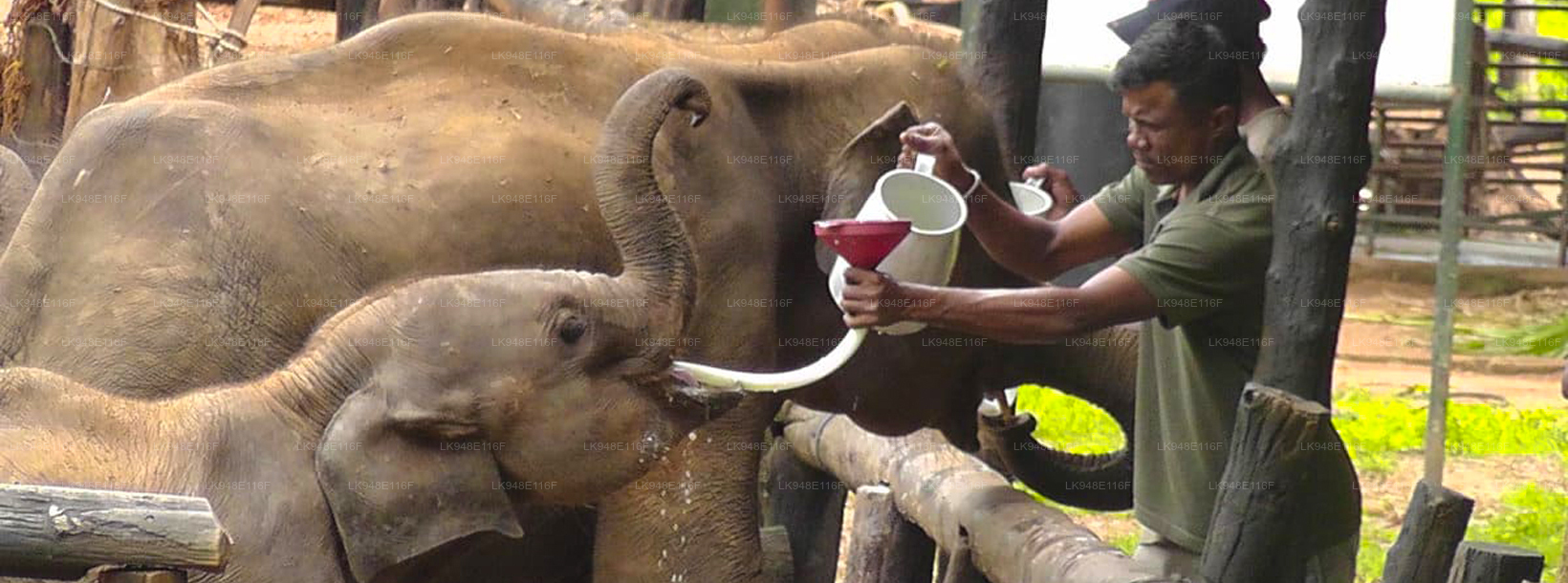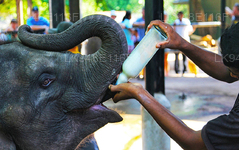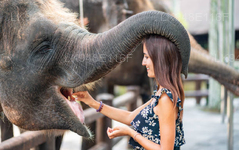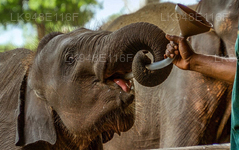Elephant Feeding

Udawalawe Elephant transits home (ETH)
Udawalawe Elephant transits home (ETH), also called udawalawe elephant orphanage. The primary purpose of the Elephant Transit Home is to rehabilitate and release isolated baby elephants to the wild.
How to feed baby elephants
Transit Home is a lively place. Feeding calves milk every three hours is a recurring job 365 days a year. Elephant calves at ETH feed once every three hours. ETH becomes a frenzy if feeding times are delayed; The pathetic cry and the elephants' charges for milk are agonizing to hear. Adapting orphaned elephant calves to powdered milk and a whole new environment requires the utmost patience and care, as unique milk formulas for elephants have yet to be introduced.
Calves are generally fed human baby milk formulas. After the initial milk feeding sessions to discover the best dairy formulas for elephant calves, to adapt to them individually, elephants are at increased risk of becoming ill with digestive problems or milk intolerance. In such cases, special preparations such as soy milk, rice broth, or Jeevanee (a rehydration solution) are provided in place of milk to return them to normal.
A day rarely goes by without one or more elephant calves getting sick. Post-disease treatment, in general, is a long process in elephants since their recovery is slow. Likewise, separating the sick with contagious diseases from the healthiest is also a tedious task. Managing the health and welfare of elephant calves with very little support from the labs and the lack of medical knowledge and experience in the country is also another challenge facing ETH officials.







